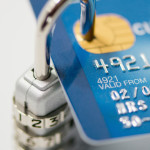 Today’s top story: Could the dreaded selfie stop credit card theft? Also in the news: The pros and cons of tuition reimbursement insurance, tips on how to avoid losing value on gift cards, and Home Depot’s credit card breach is the biggest one yet.
Today’s top story: Could the dreaded selfie stop credit card theft? Also in the news: The pros and cons of tuition reimbursement insurance, tips on how to avoid losing value on gift cards, and Home Depot’s credit card breach is the biggest one yet.
Could Selfies Stop Credit Card Fraud?
Could having your picture on your credit card deter thieves?
Is Tuition Reimbursement Insurance A Good Investment?
Protecting your investment in your child’s education.
7 Tips to Avoid Losing Gift Card Value
Depending on where you live, gift cards may never lose their value.
Home Depot Breach Bigger Than Target’s
56 million credit cards are at risk.
Stop Treating Money Like Your Master, Start Treating it Like a Tool
Don’t give money more power than it’s worth.

